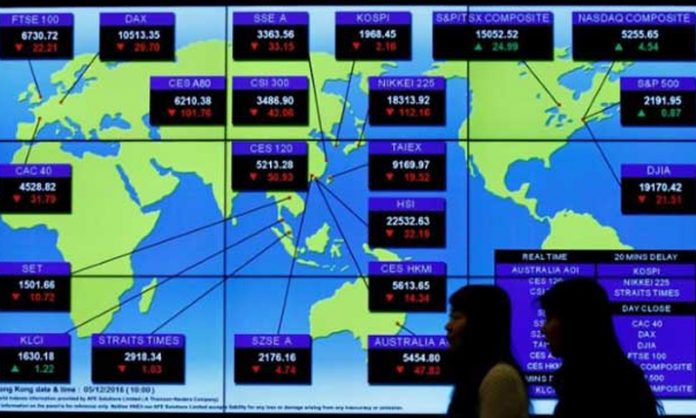HONG KONG: Asian stocks rallied while the euro held up and high-yielding currencies rebounded as investors rediscovered their desire for risk assets after the previous day’s losses fuelled by Italian uncertainty.
Regional markets were jolted and the euro tumbled to a 20-month low after Prime Minister Matteo Renzi said he would resign after losing a referendum on constitutional reform.
But attention is now turning back to the Federal Reserve’s expected interest rate hike next week, with traders hoping it will give some indication of its plans for 2017 as Trump embarks on a big-spending programme that will likely fan inflation.
“Investors shrugged off the anti-establishment messages from the Italian referendum to drive share prices higher,” Michael McCarthy, chief market strategist in Sydney at CMC Markets, told Bloomberg News.
“Attention now turns to the Fed’s interest-rate decision next week, the last listed major risk event for the year.”
The Italian result sent the European single currency crashing to $1.0506 — its lowest since March 2015 — before it bounced back as traders await more developments out of Rome. In early Asian trade it bought $1.0762, having dallied earlier with $1.08.
However, there remain concerns that political instability could scupper the country’s efforts to resolve a bad loans crisis in the banking sector and spark fresh eurozone turmoil.
On stock markets Tokyo ended the morning 0.5 percent higher, while Hong Kong was up 0.6 percent soon after opening and Shanghai added 0.2 percent.
Sydney gained 0.8 percent, Seoul was 1.1 percent higher and Taipei also put on more than one percent.
The gains were also ushered by a second record-high close for the Dow on Wall Street in three days, helped by a jump in activity in the key US services sector.
The renewed confidence provided support to Asia-Pacific currencies that have taken a beating in recent weeks because of growing expectations US borrowing costs will be hiked sharper than previously thought.
Australia’s dollar was up 0.4 percent against the greenback, South Korea’s won added 0.3 percent and the Indonesian rupiah gained 0.2 percent. The Malaysian ringgit, New Zealand dollar and Singapore dollar also posted healthy gains.





